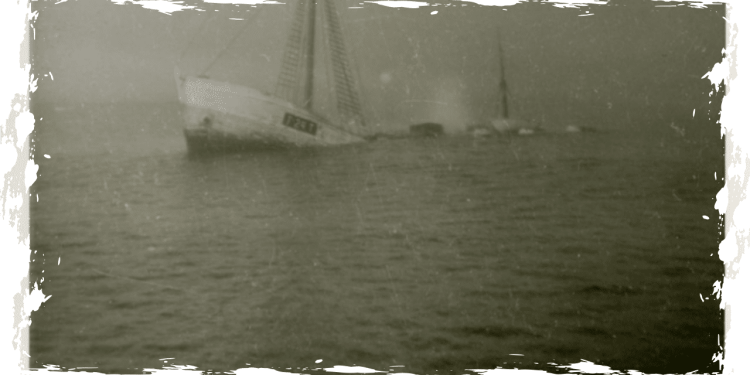According to a recent news release by the Royal Canadian Geographical Society, the sunken ship on which the renowned explorer, Ernest Shackleton, passed away over a century ago, has been discovered on the ocean floor off the coast of Canada.
Shackleton, an acclaimed explorer, embarked on several expeditions to the far reaches of the planet, including four journeys to Antarctica. One of his most notable expeditions occurred in 1915 when his renowned vessel, the Endurance, became ensnared in sea ice. Despite the vessel sinking, Shackleton and his entire crew managed to survive the ordeal. It is worth mentioning that the wreckage of the Endurance was discovered in 2022.
In 1922, Shackleton embarked on another expedition to the polar region aboard a Norwegian vessel called Quest. Unfortunately, he passed away at the age of 47 due to a heart attack, marking the end of what is known as the “Heroic Age of Polar Exploration,” as noted by the RCGS.
According to the RCGS, following Shackleton’s passing, a Norwegian company obtained ownership of the Quest and utilized it for crucial expeditions, including the 1930 British Arctic Air Route Expedition. The vessel also played a role in Arctic rescues and served in the Royal Canadian Navy during World War II.
Back in 1962, the Quest was being utilized as a sealing ship when it was struck by ice near the shores of Newfoundland, causing it to sustain damages and ultimately sink. Fortunately, the crew was able to survive the incident. However, the vessel ended up resting on the ocean floor, submerged in over 1,200 feet of water.
According to RCGS, the wreck was discovered at a distance of only one and a half miles from the ship’s final reported location. However, it required the assistance of sonar equipment and a team of experts from various countries including Canada, Norway, the United Kingdom, and the United States to locate it. The team, known as the “Shackleton Quest Expedition,” was led by search director David Mearns and lead researcher Antoine Normandin. They utilized historic logs, maps, and other relevant data to determine the possible impact of weather conditions and currents on the ship’s movement.
After only five days of the expedition, a team of historians, divers, and oceanographers successfully discovered the site and collaborated to verify the identity of the wreck.
According to BBC News, Mearns stated that when it comes to polar ships, Quest is undeniably an icon.
According to the RCGS, the Quest’s wreckage was confirmed on Sunday.
According to John Geiger, CEO of the RCGS and expedition leader, “Discovering Quest marks the end of an incredible journey in the life of Sir Ernest Shackleton. Shackleton was renowned for his exceptional leadership skills and bravery in times of crisis. It’s tragic to think that he was the only one who lost his life among all the ships he commanded.”
According to Mearns, the ship has remained in one piece and the sonar imagery matches the vessel’s known dimensions and structural characteristics.
According to the BBC, the explorers are gearing up to revisit the shipwreck in the near future to carry out a thorough investigation.
According to Antoine Normandin, the associate search director, the team has no plans to disturb the wreck at the moment. The area where the wreck lies is already protected for wildlife, so it is imperative that nobody touches it. However, the team does plan to revisit the site to take pictures of the wreckage using a remotely operated vehicle. This will help them gain a better understanding of the condition of the wreck.
The discovery of the shipwreck comes at a significant time as this year marks the 150th anniversary of Shackleton’s birth. Alexandra Shackleton, his granddaughter and a patron of the expedition, expressed that the timing of the discovery during this memorable anniversary adds an extra layer of meaning to the finding.
In expressing her gratitude for the discovery of the Quest, which was purchased by her grandfather, Sir Ernest Shackleton, with the aim of leading a Canadian Arctic expedition, the speaker noted that it was fitting that the ship had concluded its remarkable service in Canadian waters. She further expressed her appreciation to those who made this remarkable discovery possible, stating that she had long awaited this day.
Shackleton’s legacy still captivates people even a hundred years after his passing. According to the BBC, numerous individuals make a pilgrimage to his grave annually to honor the man revered as “The Boss.”










